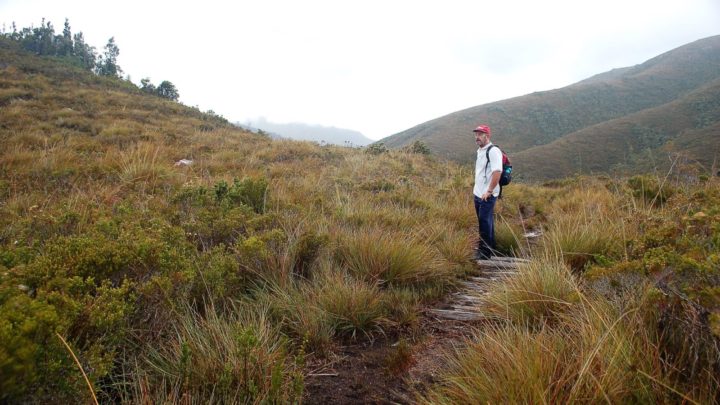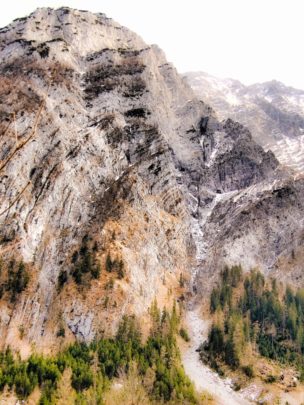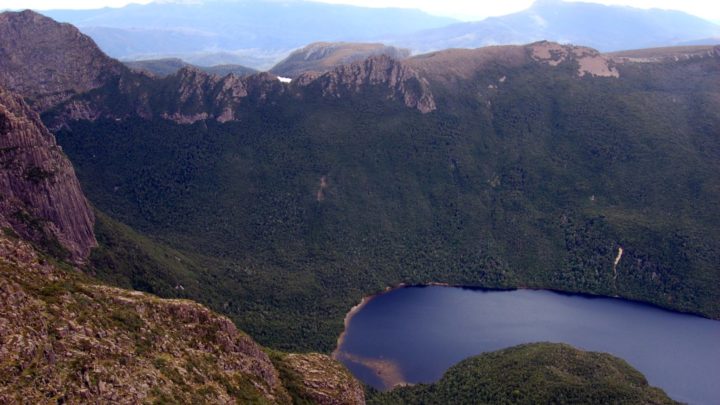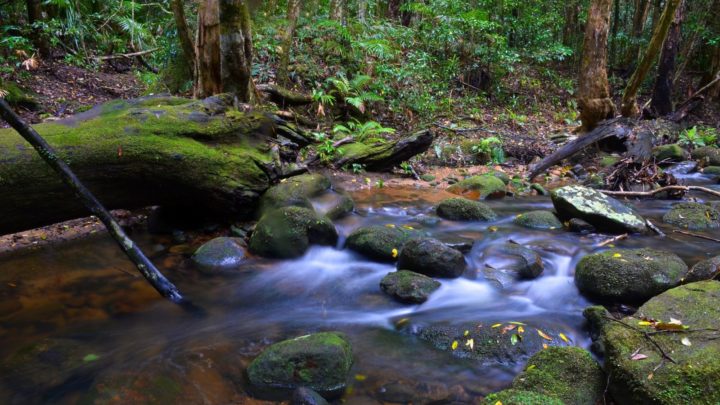
While combing through a regular newspaper I receive online I came across this fascinating, and tragic, article. It started out with details of how a 66-year-old experienced female hiker went for a comfort stop whilst walking the famed Appalachian Trail in the United States.
She went about 80 paces off trail as she usually did. Nearly two years later they found her body. Her husband had been waiting for her at the next out-point that very day. She tried texting and phoning to no avail when she realised, to her shock, that she was irrevocably lost. She lasted nearly three weeks before succumbing, despite a massive search for her. In the end her remains were discovered inside her tent a bit over half a mile off the track. She’d seen the searchers overhead and tried to contact them but she went unseen. We know this from a diary she kept.
Then, only recently, a report of two Aussies being found after 19 days disoriented in thick foggy forest in New Zealand.
It highlighted a few things, one of which is, doesn’t matter how experienced you are, without reference points you have no idea where you’re going and, what you saw in movies about going around in circles is, in reality, exactly what happens. Psychiatrists know that, when you’re lost, you get dumber. The only difference is in degrees, some get more stupid more quickly but everyone’s heading in the same direction.
Francis Chichester (yes, the sailor) was training pilots in night navigation during World War II. A group took off and all landed safely except for one pair. Three months later it was learned they’d been captured by Germans at a French airfield because they went exactly 180 degrees the wrong way, mistook the English Channel for the Bristol Channel and landed at an airfield that had switched on its lights and were thinking it was the right spot, until some German ground staff were pointing guns at their heads.
Scientific studies when the sun wasn’t visible in the Sahara Desert and the Bienwald forest in Germany concluded that people will not walk more than 100 metres from their starting point because they have no reference point. “Anyone who spends enough time in the woods will, sooner or later, become lost,” says Kenneth Hill.
People react in different ways. Lost is a cognitive state. Your internal map has become detached from the external world, and nothing in your spatial memory matches what you see. You suffer what neuroscientist Joseph LeDoux calls a “hostile takeover of consciousness by emotion”. Ninety per cent of people make things a lot worse for themselves when they realise they are lost — by running, for instance.
It is common for lost people to lose their head as well as their heading direction. Stories of people walking ‘trance-like’ past search parties, or running off and having to be chased down and tackled, are part of search and rescue lore.
Personally speaking, I’ve experienced different phases. The first was in Germany near Berchtesgaden. My goal was to walk to a place called Hintersee but somewhere along the way I took a wrong turn. At one stage I remember going through a fence to reach a forestry tower that I managed to scramble up, hoping to get some bearings, to no avail. I stumbled across and went past places like Wimbachschloss and Wimbach Gorge that I’d never heard of. It was only after more than 6 hours I came across a sign on a trail and eventually reached a hotel at Hintersee in the dark after 8.5 hours. It was a wake up call.

The next was in Tasmania, searching for the lower entrance to Lake Judd. There is a trail, though it hardly deserves the name, and it meanders along a damp floor with an island or two of trees. The weather was less than desirable, misty driven rain in the offing with an already overcast sky. Barely discernible boardwalks enshrouded by melaleucas before plunging over small watercourses and stumbling through mud was the nature of the way.

But Lake Judd lured me as a fish to the bait. Its vista from a previous trek on high to Mount Eliza tormented my brain. I splashed on as the drizzle arrived. Then, at one point, I emerged from a forested section and determined that since the trail ahead was so bad and was only going to get worse I should quit; thus I turned around and went back into the woods, but struggled to find the path. Eventually I emerged and continued on. Lord the track was terrible but I suffered in silence.

In time I came to a place I knew I hadn’t been before. A creek that was too deep for me to cross. I wondered just where I was, but had no real idea. The term ‘lost’ entered my brain and drilled in until it was fixed. My map, such as it was, was drenched and useless, much like my compass. However, I realised I had to reverse my direction from where I now was. That was after screaming meaningless obscenities to the sky above. Where was I?
I kept going until, at one particular point just before a copse of trees, I realised exactly what had happened. When I was scrambling through them originally, I’d actually turned 180 degrees and continued on instead of going back. At least, after a horrible hour, I knew what I had to do. I also knew what it was like to feel helpless and alone in the wilderness.
The next occurrence was relatively recently. Aiming down a steep slope from a carpark in the Watagans, the creek I sought was reached. I crossed it once and then twice, winding up in the backyard of some property. However, it had rained most of the time and I was drenched. My camera and phone were rendered useless by the moisture.
Instead of exploring I turned around, crossed the creek twice and scrambled up the slope. Except, when I reached very near the top, it was a jungle with almost impenetrable vines and a vertical rock shelf. After an hour of exhaustive hiking I was going nowhere and descended again to the creek before walking out to a road, making contact at a house I was walking past and getting them to ring a cab for me. When I got home I did some research and realised that the second time I crossed the creek on the way back I had actually turned about 120 degrees and gone up the wrong hill entirely.
The scary thing, as far as I was concerned, was how easy it had happened when I thought it would be hard to get lost. That’s why the article about the lady held such resonance. The person you are can be changed by circumstance in such a short time and you have no idea how you will change until it happens.
Excerpts adapted from From Here to There: The Art and Science of Finding and Losing Our Way, by Michael Bond, published by Harvard University Press.